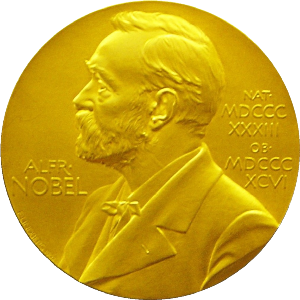The 2009 Nobel Prize in Economic Sciences
by Michael Enriquez A few weeks ago, the committee that awards the Nobel Prize in Economic Sciences announced the winners of the 2009 award. The prize winners were Elinor Ostrom of Indiana University and Oliver Williamson of the University of California, Berkeley. The committee awarded this year’s prize to these economists for their work in economic governance. For Ostrom, the committee cited her research on the methods that actors use to avoid over utilization of common property resources. Williamson’s research provided theory on the conditions under which firms are better suited for economic organization than markets.
A few weeks ago, the committee that awards the Nobel Prize in Economic Sciences announced the winners of the 2009 award. The prize winners were Elinor Ostrom of Indiana University and Oliver Williamson of the University of California, Berkeley. The committee awarded this year’s prize to these economists for their work in economic governance. For Ostrom, the committee cited her research on the methods that actors use to avoid over utilization of common property resources. Williamson’s research provided theory on the conditions under which firms are better suited for economic organization than markets.Ostrom found numerous examples in which actors had successfully avoided the “tragedy of the commons.” Standard theory had found that common property resources are too often exploited to the point of inefficiency and depletion. Ostrom examined numerous case studies in which actors avoided resource depletion through various governance structures. Much of her insight involved applying theories of repeated games in which actors may punish others who over extract common property resources.
Williamson provided theory to explain firm organization and conditions under which economic activity is better suited to take place within a firm than in a competitive market. An important basis for his theory involved the timing of work and bargaining. For instance, agreements made prior to work being performed can break down once the work is completed due to a change in the bargaining position of the actors. When the work is highly firm-specific then the actor who completed the work may find himself in a weak market position with only a single prospective buyer. In contrast, by arranging activity within a firm, the ex-ante and ex-post market issues are avoided. Similarly, the firm provides a clear hierarchy of authority which can help to clearly dictate the work that must be done. However, Williamson’s research also highlights an important disadvantage of firms: authority is prone to abuse.
The research of both Nobel Prize winners provided a richer framework for analyzing economic activity through its insight into governance. To learn about their research in greater detail, see the scientific background paper provided by the Nobel committee.
Discussion questions:
1. Describe some ways in which common property resources may be governed for the long term benefit of stakeholders. What are some of the difficulties involved in such governance?
2. What are some of the other advantages or disadvantages of firms, when compared to markets, which are not described above?
3. What other economic governance issues do you observe? Are these issues dealt with in a way that improves or worsens economic efficiency?
Labels: Efficiency, Game Theory, Nobel Prize, Property Rights, Resource Allocation



0 Comments:
Post a Comment
<< Home